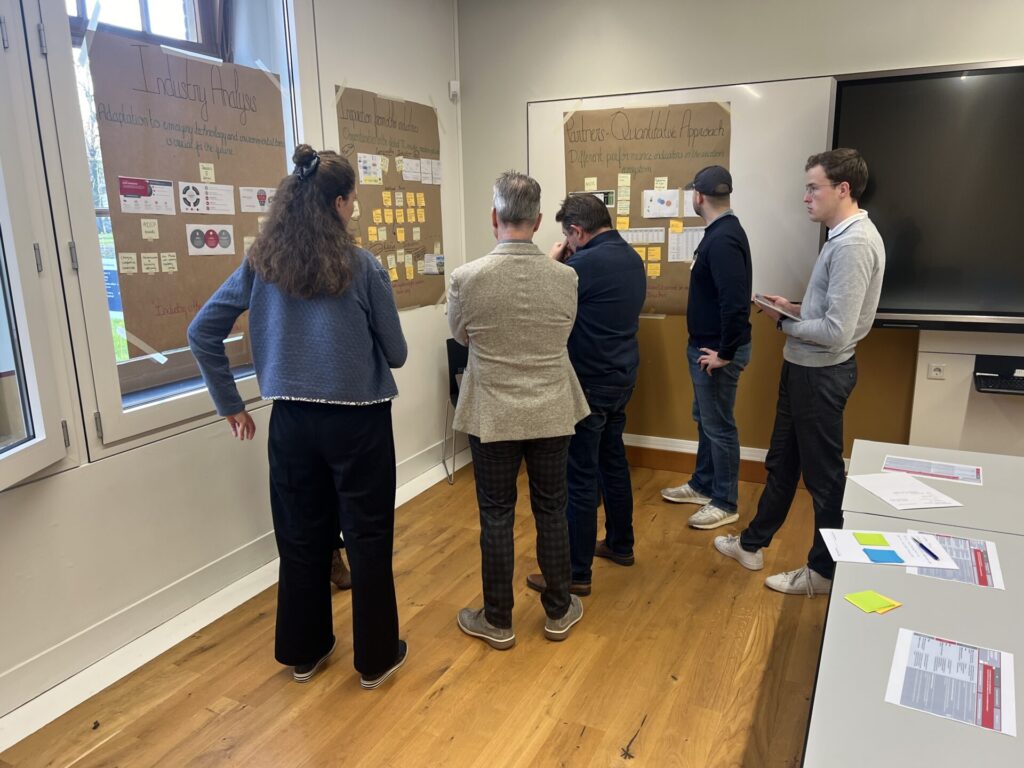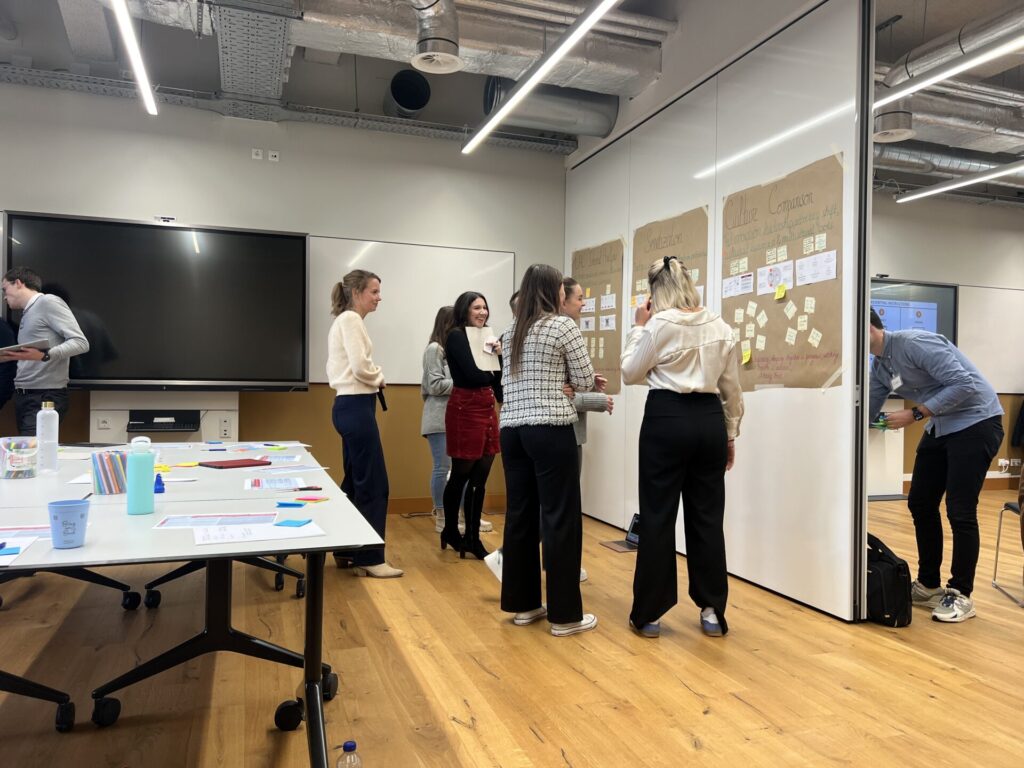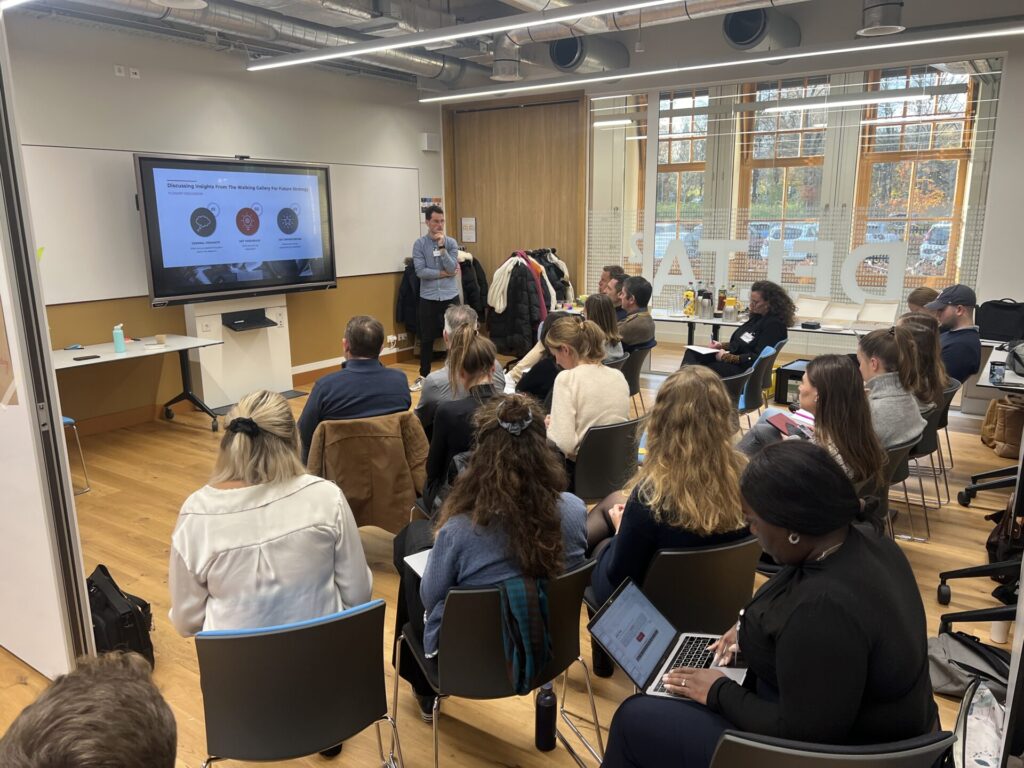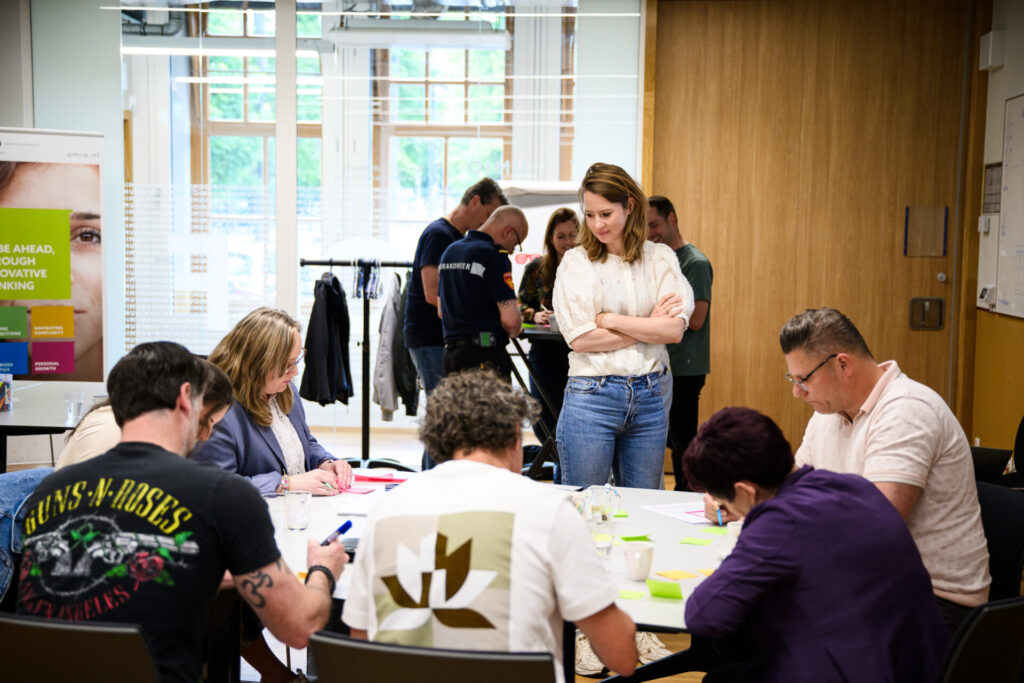EUROCONTROL Maastricht Upper Area Control Center (MUAC) found itself at a crossroads. Striving to align with the evolving landscape of ATM data services, keep its services’ quality continuously excellent, and market its highly effective and efficient software solutions, MUAC searched for guidance and fresh perspectives. To do so, MUAC collaborated with UMIO’s Service Science Factory department (SSF) to redefine its strategic trajectory. UMIO’s SSF deployed School of Business and Economics students, led by Assistant Professor Kars Mennens, to realise a research sprint. The outcome? A valuable market research report that exceeded everyone’s expectations and provided useful and actionable insights for MUAC’s future steps and strategy.
“We created a new domain in our organisation, consisting of, among others, technical systems, which we wanted to offer to our partners,” says Robert Parys, Product Portfolio Manager at MUAC. “Since we’re a part of EUROCONTROL, a non-profit organisation, we’re not commercially driven. We had a question regarding our customer orientation: how shall we define our services from a partner-related perspective, and how do we approach potential partners? To help us define our strategy, we got in touch with UMIO and Service Science Factory. We have worked with them before and have had positive experiences with them.”

Twelve students, eight weeks and one challenge
UMIO’s Service Science Factory engaged twelve dual-degree students who were physically dispersed across Europe. The students, living in Austria, Germany, Belgium, and France, conducted a meticulous eight-week, mostly remote, research sprint. The first, last, and middle weeks were physical gatherings at MUAC or Maastricht University. Kars describes: “In the first week, Robert introduced the project and gave us a very detailed explanation of MUAC’s challenges. In the middle week, he took the time to give us a tour around MUAC. That was very helpful because these interactions were a big driver for the students’ motivations and commitment to the project. It helped them sense the urgency and showed them they could actually make an impact by working on this project.”
A valuable outside-in perspective
Led by Kars, the students took a deep dive into MUAC, its challenges, and the air traffic management industry. They also conducted in-depth partner interviews about MUAC’s strengths and weaknesses. Additionally, the team injected fresh insights by benchmarking the aviation industry against diverse sectors such as railway and maritime. This provided a valuable outside-in perspective and confirmed some of MUAC’s perceptions about itself and its services and strategy.
“The major benefit of the research sprint is the awareness about how others perceive us”, Robert explains. “To have a third party investigate that from a position of impartiality has validated many of our assumptions about ourselves and who will be willing to work with us or purchase our services. It has raised awareness about the aspects of our work that are already good and the areas we can still improve. We’re very happy with this work because it was the first time we saw our assumptions about how others perceive us being confirmed by data.”

Working with students: novel perspectives
The students presented the data to Robert and his colleagues in the final week of the research sprint, visualising the research results and allowing MUAC staff to interact with the findings. “The way they presented their work was very professional and confident”, Robert believes. “You would expect that from the level of experts in the domain. The message, the report and the recommendations were all very clear, and the quality of the report was excellent. The structure of the report and the methodology was surprising and impressive.”
Robert and Kars both believe the academic input and the collaboration with students enhanced the quality of the report, added a layer of dynamism and infused the project with novel perspectives. Kars: “Nowadays, students often surprise me with how they get access to trustworthy sources. I have experienced that they’re not rusty; they’re not fixed in their thinking. At the end of the sprint, they told me that this was one of the coolest things they’ve done during their studies – if not the coolest. All of our meetings with Robert highlighted the relevance, and they learned so much from being at the core of such a relevant project.”
Robert: “I have more than twenty years of experience in change projects and programmes, and at the end of the day, it’s always about people and creating a common sense of purpose. I really believed we could achieve that with UMIO, and I am happy I was not wrong. It was a new approach, and I am very satisfied that we are open to these new approaches.”

Expanding the collaboration in a strategy sprint
The research sprint by Kars and his team of students was the first part of MUAC’s collaboration with UMIO. Robert: “The whole goal of this project is to define the strategy. The outcome of the research sprint is the input for the strategy sprint. We are now defining the strategy for our products and services with UMIO’s help. The difficult part for us now is to find a realistic and sustainable strategy – but having these insights is super useful for that.”
About MUAC
Maastricht Upper Area Control Center is a leading international non-profit air navigation service provider operated by EUROCONTROL on behalf of four States: Belgium, Germany, Luxembourg and the Netherlands. MUAC provides multinational civil and military air navigation services in the upper airspace (from 24,500 feet to 66,000 feet) of Belgium, Luxembourg, the Netherlands and the north-west of Germany. MUAC’s team is multinational and multidisciplinary, including highly skilled air traffic controllers, engineers and other specialists from 30 nations.



